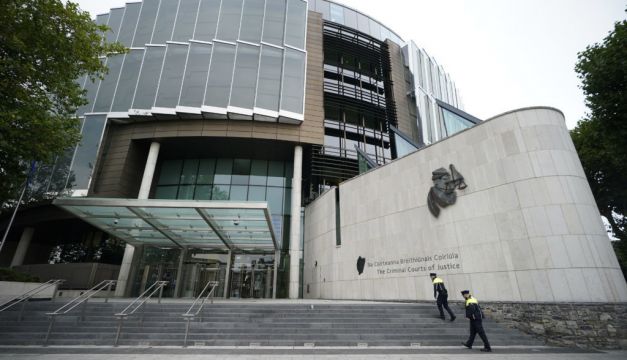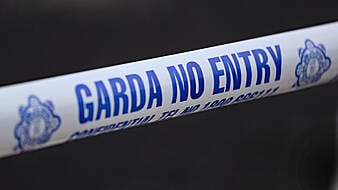A Galway teenager who sexually abused his younger sister in an “unfortunate” case has been handed a fully suspended period of detention.
The 17-year-old, who cannot be named for legal reasons, pleaded guilty at the Central Criminal Court to one count of anal rape on or around August 12th, 2020, and two counts of sexual assault on dates between November 2019 and January 2020.
The victim was nine at the time and is the younger sister of the boy. The court was told during an earlier sentence hearing that they both continue to live in the family home.
Imposing sentence on Monday, Mr Justice Tony Hunt handed the teenager a period of detention of three years in relation to the count of anal rape and one year of detention on each of the counts of sexual assault.
He suspended all periods of detention for two years on strict conditions, including that he remain in education and complete his Leaving Certificate or an equivalent training programme.
He told the teenager that he was doing this in light of a “positive” report received by the court.
The judge told the boy to “keep up the good work” and suggested he should “be grateful to his sister, family and those around you”.
He also placed the boy under the supervision of the Probation Service for 12 months.
Mr Justice Hunt thanked counsel and all those involved in this case for their “sensitivity” in dealing with this “very unfortunate” case.
The judge added that the court “wishes you and your family to put this matter behind you” and that the boy should be “thankful to his sister for the attitude she displayed in this case”.
The teenager was accompanied in court by his mother.
Disclosure
At a previous sentence hearing, an investigating garda told Roisin Lacey SC, prosecuting, that the offending came to light when the girl told her mother in early September 2020.
The boy became distressed and was taken to hospital due to concerns about his mental health. Their mother told hospital staff about her daughter's disclosure, and Gardaí and Tusla were then notified.
A social worker was appointed, and the boy did not return to the family home until a safety plan was put in place several days later.
When interviewed by specialist gardaí, the girl said the first incident occurred while she and her brother were sleeping at opposite ends of the same bed. She said it started by “accident” and they both said it “felt nice”.
She told gardaí she was in the sitting room with her brother when he anally raped her. She said he asked her if she wanted to do it, and she had agreed.
She said they were “both curious” and had “seen it on TV and heard about it in school”. She said it was sore, and he stopped when she asked him to.
The boy attended the Garda station voluntarily with his father. He told gardaí that the offending started when the girl rubbed her feet between his legs and stopped when one of them got a feeling that it was wrong.
Asked about the anal rape, he accepted that it occurred and that it was wrong.
He has no previous convictions and has not come to recent garda attention.
A victim impact statement was handed to the court but not read aloud.
'Living hell'
When asked by Mr Justice Hunt for an update on the girl during the earlier hearing, the investigating garda said they have had limited contact with her. He said he understands from Tusla that the now 12-year-old is a good student.
The investigating garda agreed with Sean Gillane SC, defending, that while gardaí have had limited direct dealings with the boy, he was cooperative.
He also accepted that the boy attended the Garda station with his father in the days following a “frightening situation” at the family home. It was further accepted that while the boy's understanding was limited, he repeatedly told gardaí that he knew what he did was wrong.
The garda also agreed that it appears the boy has complied with the safety plan, which is monitored by Tusla, as he remains in the family home.
Mr Gillane told the court his client was aged between 12 and 13 at the time and had a low level of maturity and understanding of sexual matters.
Defence counsel said this is a “complex case” and noted this must be “a living hell” for the children's mother.
Defence counsel said the mother is doing “everything she can to repair the harm caused” to the girl, who is a “victim of serious offending”. She also “loves her son and wants to do the best for him,” counsel added.
The complexities of the woman's position had caused some difficulties during the process, he said.
Ms Lacey noted there are “highly exceptional circumstances” in this case. She said the woman had “done everything she could to deal with matters”.
She said gardaí had limited access to the victim for a time, but this was later resolved.
Insight
Probation and psychological reports were handed to the court. The boy is attending a treatment programme for young people who have sexually abused others.
Defence counsel said the reports show the boy has gained “significant insight” into his offending, but more work is required. His client also has some cognitive difficulties and mental health issues. He has been assessed at a low risk of re-offending.
Mr Gillane asked the court if the boy is “not already being punished” due to the existence of the safety plan in the family home and asked that a period of detention be considered as a last resort.
The court heard the boy was homeschooled for a period, but has since returned to school and completed his Junior Certificate. A letter from the school chaplain was provided to the court.
Other references and a letter from the parents were also handed in.
Mr Justice Hunt noted this would have been like an “earthquake” for the family.
The children's mother had made a “difficult decision”, but might wish she made a different one “in hindsight” to “keep it in-house”, he said.
However, the judge said it was “in everyone's interest” that the situation was brought into the open where it can be addressed “no matter how difficult”.
He said a parent would be “pulled in two directions” and had a lot to consider that may not be open to the court, gardaí or other services.
Mr Justice Hunt said he is mindful of the “ongoing trauma” this situation must be causing.
He said the court takes its obligations under the Children Act “very seriously” and must consider if detention is appropriate in these circumstances.
Mr Justice Hunt had previously said at an earlier sentence hearing he would “do my best to avoid a custodial situation as that is what the act requires”.
If you have been affected by any of the issues raised in this article, you can call the national 24-hour Rape Crisis Helpline at 1800-77 8888, access text service and webchat options at drcc.ie/services/helpline/ or visit Rape Crisis Help.







